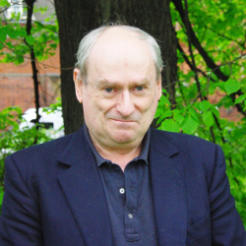A number of women fundraisers have taken to Twitter to condemn the lack of female speakers at a new fundraising event organised by former NSPCC fundraising director Giles Pegram and Professor Adrian Sargeant.
The speaker line-up at the Summit comprises nine men and just one woman, Professor Jen Shang, who is also Sargeant’s partner.
The Twitter debates were sparked off in January by a comment from @Charity_Chicks, who tweeted: “Really, is there only one woman that could be found for this?”
Pegram responded: “GLBT 1, BME 1, SD only 1. Sorry, I don’t believe in quotas, but respect the views of those who do.” When CharityChicks asked him to explain ‘SD’, he tweeted back: “Sexual Discrimination”.
Katie Grey, a fundraiser at disaster relief charity RedR, added: “How depressing, only one woman on this list of top fundraising professionals in the UK.”
Pegram tweeted in response: “Not a list of top fundraising professionals, a list of the people best able to make each point as the premise unfolds.” He later wrote: “Summit is more about wisdom, rock solid experience, and years of practice. Sorry.”
More women fundraisers joined in to challenge Pegram, among them Denisa Casement, Lesley Pinder and Kirsty Connell. Connell, fundraising manager at IdeasTap, said: “Women are half of fundraising directors now – their leadership on the ground should be reflected in thinking, imho.”
Pegram replied: “If that’s right, why do you say not involved in thinking?”, to which Connell said: “Because panels like The Summit are too frequently male dominated! Thought, discussion, etc not representative.”
Debate 'straight out of 1980'
At that point Denisa Casement chipped in: “This conversation feels straight out of 1980. Is the UK sector like this or is this an aberration?” And Pegram replied: “It may be just me”.
On another thread, Pegram wrote: “I promise I’ll put on a conference with just young female speakers, that is relevant to that group.” Casement replied: “So does that mean that nothing the men have to say is relevant to women in fundraising? That sounds a bit silly.”
And in a conversation with Connell and Pinder, he wrote: “Assuming no glass ceiling middle manager women are going to be at the top in ten years. Tanya Steele and Kath Abrahams.”
Steele is currently director of fundraising at Save the Children and Abrahams has just been appointed as director of engagement and income generation at Breakthrough Breast Cancer.
'The researchers happen to be men'
Speaking to civilsociety.co.uk this morning, Pegram explained the Summit programme was based on market research and academic research, and the people that have done that research happen to be mostly men.
He said: “Women are not under-represented in fundraising nor indeed in management positions in fundraising, but they are not yet adequately engaged in the thinking that goes on within fundraising.”
He added that the other notable thing about the speakers is that “they’re all the old guard”. And the women that occupy the 42 per cent of fundraising director posts at the UK’s biggest charities are all younger women. But it is only a matter of time, he said, before those women do play a bigger role in the thinking on fundraising.
“In fact I think in 20 years’ time the danger could be the other way, that there will almost be more women,” he said. “Women have more emotional intelligence than men and increasingly fundraising is about relationships, not about techniques. So I think we will see women taking over.”
Asked to explain his comment about Steele and Abrahams, Pegram said: “It’s the distinction between the thinking and the management. They are in senior management but they are really just concerned with the operations. They need to become, and they will become, because it’s bound to happen, more involved in the thinking. They’re going to become the next generation of the great and the good.”
The speakers at the event include Ken Burnett, Alan Clayton, Bernard Ross, Joe Saxton, and auditor Pesh Framjee.









